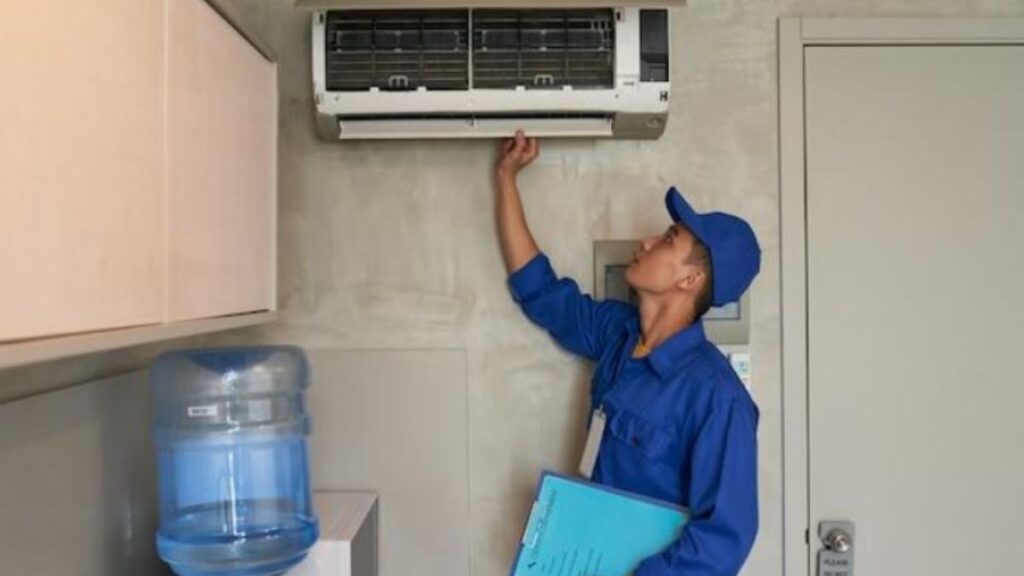Selecting the right air conditioner is an essential decision for creating a comfortable, efficient, and healthy indoor environment. The right system should not only provide consistent cooling but also help control humidity, improve air quality, and reduce long-term energy costs. With so many models, sizes, and configurations available, understanding how each option fits your home’s layout and needs can make all the difference. Choosing wisely ensures comfort throughout the year while preventing unnecessary repairs or replacements. A thoughtful approach saves money, energy, and time while keeping your household cool and comfortable in every season.
Identifying your home’s cooling requirements
Every home has unique cooling requirements, and finding the right air conditioner begins with a detailed evaluation of your space. Factors such as square footage, insulation quality, number of windows, and exposure to sunlight directly influence how much cooling power your system needs. An undersized unit will run continuously, consuming excess energy without effectively lowering temperatures, while an oversized one will cool too quickly, leading to uneven temperatures and moisture buildup. Understanding your home’s structure helps determine the right unit size for balanced cooling performance. Additionally, modern homes often benefit from zoning options that allow for separate temperature controls in different areas, enhancing comfort and efficiency. Consulting with a trained technician ensures that every factor—from ductwork design to ceiling height—is accounted for before selecting a unit. By assessing these details early, homeowners can avoid costly mismatches that affect both performance and comfort.
Considering energy efficiency and long-term performance
Energy efficiency should be a top priority when selecting an air conditioner. Efficient systems not only save money on monthly bills but also help reduce strain on the environment. Modern air conditioners include efficiency ratings such as SEER (Seasonal Energy Efficiency Ratio) or EER (Energy Efficiency Ratio), which measure how effectively a system converts energy into cooling. Higher ratings indicate lower energy consumption and better overall performance. While units with higher efficiency ratings might cost more upfront, they often provide greater savings over time through reduced operating expenses. Energy-efficient systems also tend to operate more quietly and offer more consistent cooling. When evaluating your options, it’s also helpful to consider maintenance accessibility and warranty coverage. For homeowners seeking reliable air conditioner repair Florence, AL, investing in an efficient and well-maintained system ensures long-term reliability and peace of mind. A properly selected and serviced system maintains performance even in extreme temperatures, providing value far beyond its initial installation cost.
Selecting the right type of air conditioning system
The type of air conditioner you choose has a significant impact on comfort, cost, and flexibility. Central air systems are ideal for larger homes with existing ductwork, offering even cooling across multiple rooms. Ductless mini-split systems provide targeted cooling for specific areas, making them perfect for homes without ducts or for additions where traditional systems are impractical. Window or portable units can serve smaller spaces or single rooms effectively, though they may not offer the same efficiency as permanent systems. Each type has its advantages, and the right choice depends on your home’s layout, energy goals, and lifestyle. For instance, ductless systems often include smart features such as individual temperature control and remote access, providing a modern approach to comfort management. Choosing the right system requires balancing initial investment with long-term convenience, ensuring that the cooling solution aligns with both your immediate and future household needs.
Balancing size, capacity, and climate considerations
Selecting the correct size and capacity for your air conditioner is crucial for achieving both comfort and efficiency. System capacity is measured in BTUs (British Thermal Units), which indicate how much heat the unit can remove per hour. A system that’s too large will cool the air quickly but fail to remove humidity effectively, leading to clammy indoor conditions. On the other hand, a smaller unit will run continuously, overworking components and consuming excess power. To avoid these problems, professionals use load calculations that consider factors like room size, insulation, and climate zone. Homes in warmer regions require higher-capacity units, while milder climates may perform well with smaller systems. Properly sized systems not only ensure comfort but also reduce long-term wear and maintenance needs. Balancing these factors ensures smooth operation, consistent cooling, and a longer system lifespan, preventing unnecessary strain and energy waste throughout the years.
Evaluating noise, comfort features, and air quality
Noise control and indoor air quality are two often-overlooked factors that significantly impact comfort. Modern air conditioners are designed with sound-reducing technology to minimize operational noise, making them ideal for bedrooms or living areas. When comparing models, look for units with lower decibel ratings for quieter performance. Comfort features such as variable-speed fans, programmable thermostats, and humidity controls enhance convenience while improving energy efficiency. Additionally, air conditioners equipped with high-quality filters or built-in purification systems can trap dust, allergens, and pollutants, creating a healthier indoor environment. Improved airflow and air quality not only increase comfort but also benefit respiratory health. These features contribute to an enhanced living experience, ensuring that your air conditioner delivers more than just temperature control—it becomes a vital part of a clean, quiet, and comfortable home. By selecting a system with both performance and comfort in mind, homeowners achieve a balanced, long-lasting investment in their indoor environment.
Factoring in installation quality and ongoing maintenance
Even the most advanced air conditioning system can underperform if installed incorrectly. Proper installation ensures that ductwork, electrical connections, and refrigerant levels are precisely set to manufacturer standards. Working with certified technicians guarantees that the system operates efficiently from day one. Maintenance is equally important—routine cleaning, inspections, and timely part replacements keep your air conditioner performing optimally. Neglecting maintenance often leads to energy waste, reduced airflow, and avoidable repair costs. Investing in professional upkeep extends the life of the system and prevents premature breakdowns. It also ensures that energy efficiency remains consistent throughout the unit’s lifespan. Homeowners should schedule seasonal checkups before peak summer months to ensure readiness and reliability. Proper installation and ongoing maintenance form the backbone of performance, making them critical considerations when selecting and caring for any air conditioning system. This attention to detail ensures that comfort and efficiency are sustained year after year.
Prioritizing long-term value over upfront cost
While price is an important factor, the cheapest option is rarely the most cost-effective in the long run. High-efficiency air conditioners may have higher upfront costs, but they often pay for themselves through reduced energy bills, fewer repairs, and a longer lifespan. It’s important to consider total ownership cost, which includes installation, energy usage, and maintenance. Investing in a high-quality unit ensures better performance, lower operating noise, and improved comfort. Additionally, energy-efficient systems may qualify for rebates or tax incentives, further offsetting their cost. The right balance between affordability and long-term reliability provides lasting value for homeowners. Rather than viewing the air conditioner as a short-term purchase, it should be seen as an investment in consistent comfort, healthier indoor air, and lower utility expenses over time. By focusing on long-term value, homeowners make choices that provide financial and environmental benefits for years to come.
Making the right choice for lasting comfort
Choosing the right air conditioner requires thoughtful consideration of energy efficiency, system size, features, and installation quality. Each factor contributes to performance, comfort, and long-term savings. A properly selected and maintained system not only keeps your home cool but also operates efficiently, improving indoor air quality and reducing environmental impact. By balancing cost, design, and function, homeowners can enjoy reliable comfort through every season. The right air conditioner enhances daily life, supports sustainability, and provides peace of mind. Making an informed choice today ensures lasting comfort, energy savings, and a healthier home for years to come.







